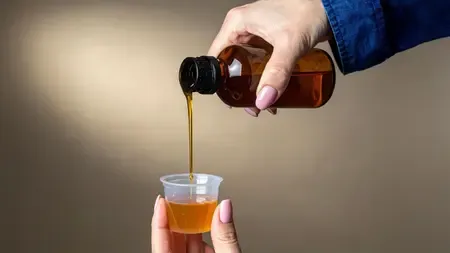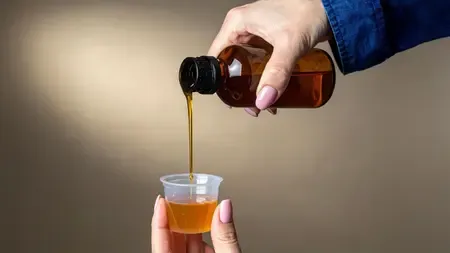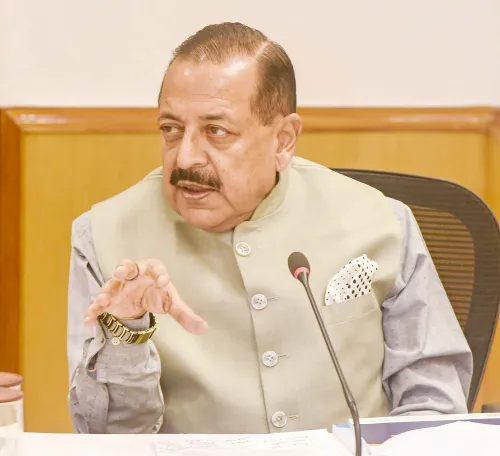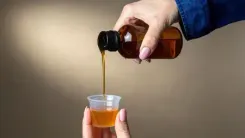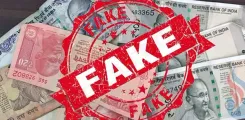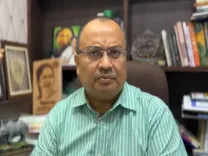Why Was a Doctor in Madhya Pradesh Arrested for Prescribing Toxic Cough Syrup?

Synopsis
Key Takeaways
- 10 children died after consuming tainted cough syrup.
- Doctor arrested for prescribing Coldrif syrup.
- Contaminated syrup contained 48.6% diethylene glycol.
- Government has banned Coldrif and is investigating the manufacturer.
- Health officials urge caution among parents.
Chhindwara, Oct 5 (NationPress) - A physician in Madhya Pradesh's Chhindwara district has been taken into custody following the tragic deaths of 10 children linked to the use of tainted Coldrif cough syrup, which has sparked significant public outrage, according to officials on Sunday.
The majority of the deceased children received treatment at the private clinic run by pediatrician Dr. Praveen Soni in Parasia. Dr. Soni, who also serves as a government physician, allegedly prescribed the Coldrif syrup to numerous children dealing with cough and seasonal fever.
This devastating situation unfolded when the children, who initially appeared to be recovering, later developed severe complications that culminated in kidney failure and eventual death.
In response to the incident, the Madhya Pradesh government has initiated legal action against Srisan Pharmaceuticals, the Tamil Nadu-based company in Kanchipuram that produces Coldrif.
Authorities confirmed that laboratory tests revealed the syrup contained alarmingly high levels of diethylene glycol, a highly hazardous industrial solvent.
As per officials, an analysis conducted by the government drug analyst at the Drug Testing Laboratory in Chennai indicated that the syrup had a concentration of 48.6 percent diethylene glycol.
The Tamil Nadu Directorate of Drug Control subsequently classified the sample as "Not of Standard Quality". The state government swiftly enforced a ban on the sale and distribution of Coldrif throughout Madhya Pradesh.
Additionally, local authorities have also halted the sale of another cough syrup, 'Nextro-DS', pending its test results.
The test results confirming the toxicity of Coldrif were received on Saturday, while results for Nextro-DS are anticipated soon.
The series of events began when a surge of children with common cough and fever were treated with the syrup. Initially, their symptoms diminished, but soon after, they began to experience grave complications, including significantly reduced urine output, indicative of acute kidney injury.
As their health deteriorated, kidney biopsies were performed, confirming the presence of diethylene glycol poisoning.
The affected children were initially admitted to Chhindwara District Hospital, but as their conditions worsened, several were transferred to Nagpur in Maharashtra for specialized treatment.
Despite medical interventions, three children died in Nagpur, while six others passed away in Chhindwara in the following days.
Authorities have now commenced an extensive investigation into how the toxic syrup made its way to the market and why it was prescribed to young patients.
Officials continue to investigate the responsibilities of Srisan Pharmaceuticals and the distribution network that supplied the contaminated batch.
Authorities have been directed to maintain rigorous oversight on the distribution of Coldrif Syrup and ensure full adherence to the ban.
Health officials have advised parents and guardians to refrain from administering Coldrif Syrup and to report any adverse reactions in children to the nearest healthcare facility.

